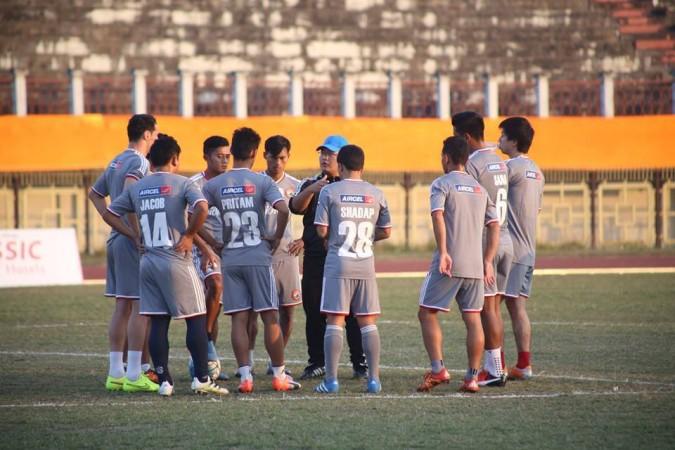
The North East part of India may be the new Mecca of Indian football and a hotbed of young talents, but goalkeeping remains one aspect of play where these youngsters don't excel much. Blame it on their genes, says Shillong Lajong FC coach Thangboi Singto, a veteran Indian football coach.
Shillong Lajong FC take on defending champions Bengaluru FC in the first I-League encounter of 2017 at Bengaluru's Sree Kanteerava Stadium on Saturday, January 7.
Shillong Lajong is known for promoting the very best of North East talents like Eugeneson Lyngdoh, currently the star midfielder of Bengaluru FC, Lalthummawaia Ralte, a backup goalie for BFC, Lalchhuanmawia Fanai, BFC left-back and Boithang Haokip, a star winger who was once hailed as the Indian David Beckham.
"The policy of Shillong Lajong is to promote North Eastern talents. I think we have fulfilled the aim quite reasonably. We had players like Eugeneson and Lalchhuanmawia, who are now major stars for Bengaluru FC," the Manipuri coach said in a media briefing ahead of their first I-League 2017 match.
"We have always fielded four, five, six players from the region in every match over the seasons. In terms of temperament, the youngsters have developed really well and their approach to the game, and aim for being a professional player has also got fulfilled. Lajong is one team where opportunities are given to young players. It will keep continuing," he added.
The goalkeeping aspect of the game is, however, something which the North East region has not been able to promote much. Blame it on the genes, says Thangboi. "We don't find many goalkeepers in North East. So, we have to bring in [buy goalkeepers] some. Well, It might be the genes you know [that great goalkeepers have not arose over the years from the region], so it's very difficult for us," Thangboi said.
"At the moment, there may be young goalkeepers coming up of that stature which normally should be for goalkeepers, probably because of hybrid reasons, may be inter-caste marriage. That could be a reason. But as per history, from where we come, we are not that genetically tall," he added.








